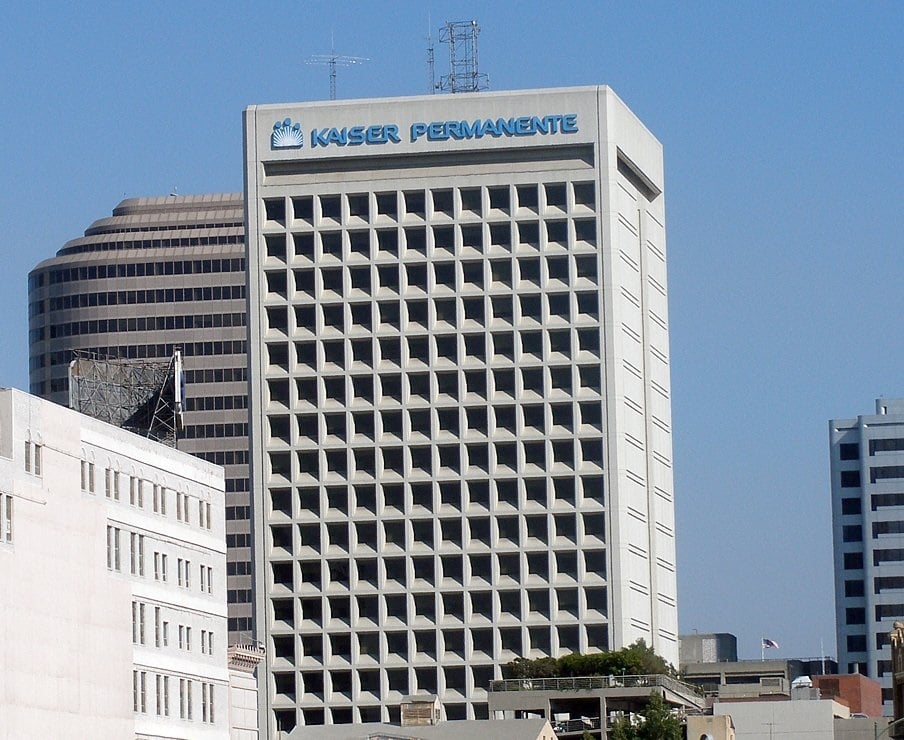SAN FRANCISCO (CN) — California Attorney General Rob Bonta announced a $49 million settlement Friday with Kaiser Foundation Hospitals and Kaiser Foundation Health Plan Inc. to resolve allegations that the health care provider illegally disposed of hazardous waste and medical materials in waste bins at its facilities.
The hazardous materials included hundreds of items of medical waste including human blood, aerosols, cleansers, syringes, batteries, sanitizers, electronic wastes, medical tubing with body fluids, and prescription and over-the-counter drugs with patient information on them.
In addition to the waste, over 10,000 paper records with information on more than 7,700 Kaiser patients were discovered. All of the items were to be dumped at public landfills.
“We determined that Kaiser failed to properly characterize waste generated at its facilities, properly contain and label waste, use registered transporters, prepare required shipping and tracking documentation, train employees, and shred or destroy papers that protected health information. They failed to do all of that,” Bonta said.
Appearing at a virtual press conference to announce the settlement alongside six California district attorneys, Bonta said the materials represented a “significant” risk to anyone who may come in contact with them.
The investigation started with undercover dumpster inspections at 16 Kaiser facilities between 2015 and 2017.
“At the time, the waste bins were being transferred to landfills. Those inspections were occurring around the state simultaneously and ultimately led to the Department of Justice being contacted and us all working together,” San Francisco District Attorney Brooke Jenkins said.
The investigation’s scope expanded across the state after the Department of Justice became involved.
Officials didn't reveal where exactly hazardous materials were found. Bonta said the problem was wide-ranging: Kaiser is the largest healthcare provider in California, operating over 700 facilities in the Golden State. The company was founded in Alameda County and its headquarters are in Oakland.
“As a major corporation in Alameda County, Kaiser Permanente has a special obligation to treat its communities with the same bedside manner as its patients,” said Alameda County District Attorney Pamela Price. “Dumping medical waste and private information are wrong, which they have acknowledged. This action will hold them accountable in such a way that we hope means it doesn’t happen again.”
Bonta said that Kaiser was immediately cooperative with the investigation, hiring a third-party consultant and conducting over 1,100 trash audits at its facilities to improve compliance. The healthcare giant also changed its procedures to improve the storage, handling, and disposal of waste.
As part of the settlement, Kaiser must pay $37 million in civil penalties, $4.8 million in attorney fees and another $4.9 million for supplemental environmental projects.
If, within five years of the entry of the final judgment, Kaiser has not spent $3.5 million at its California facilities to implement better environmental compliance measures that ensure it's following laws it's accused of violating, it will need to pay an additional $1.5 million.
For the next five years Kaiser must also retain an independent, Bonta-approved auditor to perform at least 520 trash compactor audits, and 40 annual programmatic field audits, at its California facilities.
Kaiser is accused of thwarting California’s Hazardous Waste Control Law, Medical Waste Management Act, Confidentiality of Medical Information Act, Customer Records Law, and Unfair Competition Law and the federal Health Insurance Portability and Accountability Act of 1996, known as HIPAA.
Bonta said Kaiser has a responsibility as an industry leader to set a higher bar for all healthcare companies in California.
“When we’re talking about the health, privacy, and well-being of Californians, we can and we will accept nothing less,” Bonta said. “We hope the settlement sends a clear message to Kaiser and all healthcare providers and businesses in California.”
Subscribe to Closing Arguments
Sign up for new weekly newsletter Closing Arguments to get the latest about ongoing trials, major litigation and hot cases and rulings in courthouses around the U.S. and the world.









